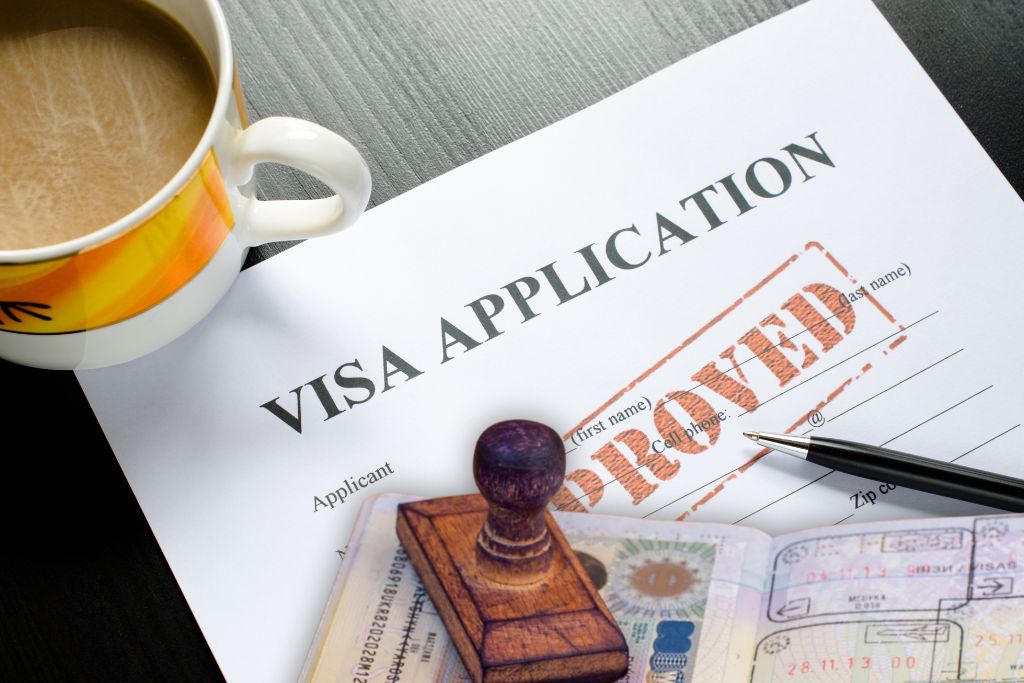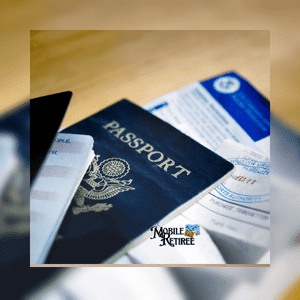veni, vidi, visa
I came, I saw, I stuck around for a while
Filed away under ‘important information you need to know before traveling to a foreign country’ there is a whole subset of entry and visa requirements –
How long can I stay? Do I need any vaccinations to get into the country? Are there any travel restrictions within the country? What documents are required for entry into the country?
Specific and accurate information is important; getting all the way to customs only to be denied entry is not my idea of a good time. Check entry and length of stay requirements with the consulate for the country you’re traveling to rather than getting all your information from ‘travelingChad’ on your InstaGram feed.
Aside from ‘How long can I stay?’ the answers to these questions are usually easily found on the consulate website for the country you are visiting.
How long can I stay is the most variable question because the answer is “Well, that depends on a few different things” The information on the various consulate websites can be confusing when it comes to specifics so you’re probably going to need an attorney for very long term stays.
******* As a US citizen, all of my information is going to be from the perspective of a US citizen holding a US passport. If you are a citizen of some other county which is not the US, or you have a passport from a country that is not the US, you should double check requirements because they may be different for you. Generally speaking, the overwhelming majority of the time, Canadian citizens are given the same restrictions as US citizens but that’s by no means guaranteed to be true. *****

As a US Passport holder, you can stay virtually anywhere for up to 90 days with no visa required; just show up and be a tourist. Certain countries may allow longer stays – Panama, for example, allows up to 180 days. A very few countries require a visa to get in at all – China, Egypt, Iran, Australia <!?>, and Russia among them
You may or not be asked to show proof of a couple things before being admitted to a foreign country, the most common requirements you’ll need to satisfy at or before the border are –
- Intent and means to leave. In other words, they may very well require you to produce a plane or bus ticket showing that you are leaving the country in 90 days or less
- Financial solvency. No country really needs any more beach bums so you may be asked to prove that you have the financial resources to support yourself while you are in the country. This is covered extensively in an earlier post but the threshold for a lot of places is $500
- A valid passport that doesn’t expire until AFTER you leave. Typically the requirement is that your passport must remain valid for 3 to 6 months after you leave the US
Can you reset the Visa Requirement Clock?
Different countries have different ‘reset’ periods for the 90 day clock. If you want to spend an extended amount of time in a particular country there are some that only require you to leave for 24 hours then you can start over with a fresh 90 days. Some require 72 hours absence.
There is some potential risk to this ‘periodic border run’ lifestyle because at any point you can be denied reentry and border control’s only justification can be as simple as ‘we don’t want to let you back in’. If you have a long-term lease and own a bunch of stuff that is now in a country you can’t legally access… Well, that could be a significant issue, right? Maybe if you’re planning to stay you should look into the official visa requirements and do it legally.
To further complicate the 90 day clock discussion, in Europe there is something called the Schengen Zone; this coalition of 27 (as of 03/13/23) countries have essentially eliminated the internal border crossing red tape to allow free travel within the zone.
However, as a US Passport holder, while you can spend up to 90 days in any member country, you can only spend 90 days out of 180 in the Zone. You can’t just bounce from country to country and continually reset the 90 day clock like you could in non-Schengen countries. Once you spend 90 days in a Schengen country (or any combination of countries) you need to leave the zone entirely for 90 days to reset the clock. If you’re okay visiting Eastern Bloc countries you could just do some west-to-east-to-west moves but you could also escape south to Montenegro or north to the UK.
As a tourist, generally speaking, you are not allowed to work in the host country but you can probably work remotely for your US-based employer with no repercussions.
What if I want to stay longer or, ya know, open a local bank account? Or get a job? What are my visa requirements then?
It’s a complicated subject because there is no one residency program that covers the world.
To clarify so we’re all on the same page here, residency is NOT the same as citizenship. You can be a permanent resident of a country without being a citizen of that country. It is also possible to get a passport from another country but that’s well beyond the scope of this post.
Most countries offer a variety of visa options to allow stays ranging from 6 months to permanent residency. The requirements can vary wildly from one country to the next even for the same type or class of visa. Below I will cover the generally available types or classes of visa but I can’t get too deeply into country specific issues because, well, to be honest it would just take too long to sort out. THE names change from place to place, as well. Panama’s ‘pensionado visa’ is the equivalent of Portugals ‘D7 visa’
What is a retiree or pensionado visa?
These programs are aimed at people who are drawing a government funded pension and will be financially self-sufficient. The minimum income requirements are usually, but not always, a multiple of the country’s established minimum wage so there is a lot of variability. Panama, for example, requires a guaranteed income the equivalent of US$1,000 / month and an additional $250 per dependent. So, US$1,250 / month for a married couple. Several EU countries have established 150% of minimum wage as the threshold so it would be a different amount in Greece than Italy.
The majority of the retiree visa programs also require proof that it is a lifetime pension – SSI or military retirement would be super easy to prove, private pensions maybe a little tougher. Some countries are a little easier, Portugal allows for passive income through investments or rental income rather than just a pension
Golden Visa – This is an investment visa and is usually a fast-track to permanent residency. The required investment can be significant; hundreds of thousands in $US. The investment can take different forms depending on the country – some allow investments in real estate (and that seems to be the way most of them are obtained, purchasing a home to live in or some rental properties), business or just long-term investment vehicles like CD’s or bonds. These programs are undergoing significant change in several countries right now as it seems there are just too many people with excess money who want to be ex-pats.
Industrial or environmental visa – Especially in central and South America there are environmental preservation programs that can be a fast track to permanent residency. Invest US$60,000 or $100,000 or whatever their magic number is to save the rain forest or some similar programs and you can stay as a temporary resident while you fulfill the requirements to permanent residency. There are also programs to gain residency more quickly if you start or make a significant investment in a substantial business. Not ‘Joe’s Video Editing and DJ Services’ but something that will have an actual measurable economic impact through hiring of local employees and purchasing materials/supplies.
Digital Nomad visa – This is a hot topic right now, it turns out that a lot of jobs are not location dependent. Who knew? Web and software developers, business coaches, data entry folks and many more don’t have to go to an office to do their work; they just need a laptop and reliable internet connection. So rather than a funky overpriced apartment in a crowded city you can just as easily live abroad. The Digital Nomad visa is targeted for longer term but non-permanent stays. Most are 6 to 12 months.
Student visa – Fairly self-explanatory; this is for a long term but non-permanent stay while going to school in a foreign land. I have read and heard that some countries have super loose requirements as to the location and number of classes required to be considered a student while others require essentially a degree track and they monitor attendance and grades. Once we’ve done a bit of traveling I will probably wind up investigating this option if we find someplace we’d like to stay for more than a few months. And I may explore how it impacts life in the Schengen Zone – If I’m a student in Italy, for example, it would be pretty easy to take some long weekends and visit France, Croatia, Switzerland, etc. but have the advantage of being able to sign a longer lease on a residence to reduce our overall cost of living
Employment visa – Usually reserved for specialized skills, you’re not likely to get an employment visa as a tradesperson but if you have rare skills in a high-demand field this could be a possibility. Also maybe if you’re high profile in your field and a foreign company really wants you there. Trust me when I say that there are a lot of unrealistic situations shown in TV and movies, LOL.
I’m going to end this with very rare – for me – advice; before you commit to retiring or permanently moving to a foreign country you need to speak to an attorney in that country who specializes in, or at least handles a lot of, immigration cases. I want you to understand the gravity of that recommendation – for the most part I would pay extra to go the rest of my life without ever engaging an attorney but in that specific situation I’d hire one as my first step.
Travel safe and remember –
‘Hope’ is not a reliable strategy for success.
Here are some helpful resources for additional research on travel entry and visit requirements:
The U.S. Department of State’s website has a page dedicated to country-specific travel information that includes entry/exit requirements, safety and security information, and more. Visit: https://travel.state.gov/content/travel/en/international-travel/International-Travel-Country-Information-Pages.html
The International Air Transport Association (IATA) has a comprehensive database of travel requirements for various countries, including entry/exit requirements, visa information, health requirements, and more. Visit: https://www.iatatravelcentre.com/world.php
The website of the embassy or consulate of the country you plan to visit is also a valuable resource for information on entry/exit requirements and visa information. You can find a list of foreign embassies and consulates in the U.S. on the U.S. Department of State’s website: https://www.usembassy.gov/
The Centers for Disease Control and Prevention (CDC) has a page on their website that provides information on vaccinations and other health-related requirements for travel to specific countries. Visit: https://wwwnc.cdc.gov/travel/destinations/list/
The World Health Organization (WHO) has a page on their website that provides information on health requirements for travel to specific countries, including vaccination recommendations and disease outbreaks. Visit: https://www.who.int/ith/en/
Remember, it’s always important to verify information from multiple sources and to stay up-to-date on any changes to entry and visit requirements,

